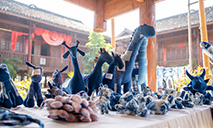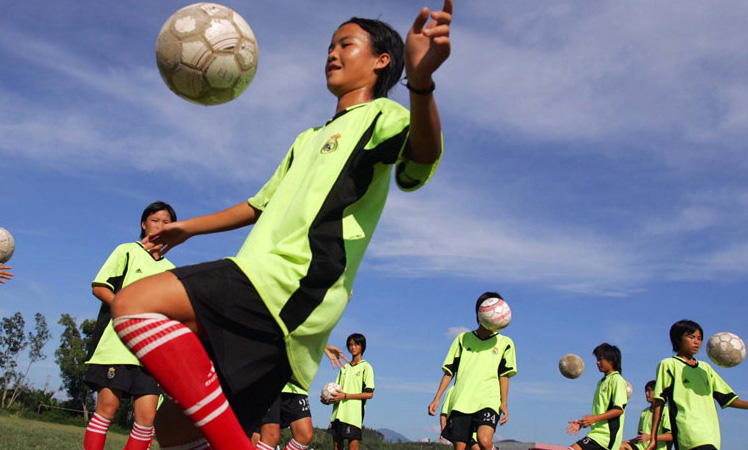China Focus: Science, technology boost accessibility for people with disabilities
BEIJING, March 13 (Xinhua) -- Jia Hongguang, a Chinese gold medalist at the Tokyo Paralympics, firmly gripped the Beijing 2022 Paralympic Winter Games torch with a bionic hand and handed it to the next torchbearer to complete his leg of the torch relay at the Temple of Heaven in Beijing on March 2.
"It was amazing to have the hand. The scientific and technological innovation makes my life easier," he said.
Jia was not alone to have benefitted from the scientific achievements supported by technologies developed by director Ji Linhong and his team of intelligence and biomechanics laboratory at Tsinghua University in Beijing.
Ji and his team made tailored plans for each Chinese para-athlete and recorded their body movements in the training through a monitoring system.
Benefitting from the scientific training, Liu Zixu clinched China's first gold medal at the Beijing 2022 Winter Paralympics in Para biathlon men's sprint sitting on March 5, also China's first Paralympic champion in snow events.
"We analyze the data to sum up the motions and develop biomechanics plans suitable for athletes with disabilities," Ji said. "In the future, these technologies could serve the daily life of the disabled."
As China's scientific and technological innovation center, Beijing has taken the chance of the Beijing 2022 Paralympic Winter Games to promote barrier-free living.
Du Peng, a barrier-free supervisor in Beijing, goes around in a wheelchair every day to experience and investigate the accessibility of public facilities on streets and at airports, subway stations, shopping malls, and hospitals in the megacity.
"Over the past three years, the barrier-free facilities have not only been installed or improved in major public areas, but also in small restaurants and neighborhood stores, which are friendly to people with disabilities," said the 41-year-old.
According to the Beijing Disabled Persons' Federation, supervisors like Du had been invited to experience accessible facilities at the Paralympics sports venues more than 10,000 times, which has contributed to the public supervision of the city's development of barrier-free facilities.
"People used to think that accessible facilities are only for the disabled, but in fact, the pregnant, the elderly, children, and many other groups may also need to use barrier-free facilities sometimes. They are relevant to each of us," Du said.
Yan Jiarong, a spokesperson for the Beijing 2022 organizing committee, said the Beijing 2022 Paralympic Winter Games is to be concluded on Sunday, but the work of developing the barrier-free environment is going to be a long-term project for an inclusive society.
"An 'accessibility mindset' is very simple. Every one of us has an understanding and tolerant heart, and truly respects, cares, and helps disabled friends so that they can better integrate into society," Yan explained.
Photos
 Traditional tie-dye products of Buyi ethnic group in Guizhou popular among tourists
Traditional tie-dye products of Buyi ethnic group in Guizhou popular among tourists Girls from mountainous areas in Hainan pursue football dreams
Girls from mountainous areas in Hainan pursue football dreams Chinese artist forms elaborate images using whisked tea foam in revival of Song Dynasty’s cultural splendor
Chinese artist forms elaborate images using whisked tea foam in revival of Song Dynasty’s cultural splendor Wild lilies in full bloom as snow melts in Xinjiang
Wild lilies in full bloom as snow melts in Xinjiang
Related Stories
- Chinese para cross-country skiers set new record through spirit of perseverance
- More Chinese people with disabilities enjoy improved public sports services
- Digital development facilitates social inclusion of people with disabilities
- China's Progress in Parasports
- China improves human rights of people with disabilities through sports
- White paper shows sports participation of people with disabilities amid China’s human rights protection
- 'Basketball girl' proves herself in swimming pool
- More students with disabilities pursue higher education in China
- UN chief calls for greater inclusion of persons with disabilities in society
- Chinese premier stresses vocational training for people with disabilities
Copyright © 2022 People's Daily Online. All Rights Reserved.






